India has said it plans to deport Rohingya Muslim refugees who have come from Myanmar (Reuters).
On August 8, the Home Ministry sent a notice to all states asking them to identify and start the process of deporting Rohingyas.
"Illegal migrants are more vulnerable for getting recruited by terrorist organisations. Infiltration from Rakhine State of Myanmar (where Rohingyas are based) into Indian Territory specially in the recent years besides being burden on the limited resources of the country also aggravates the security challenges posed to the country," the notice said.
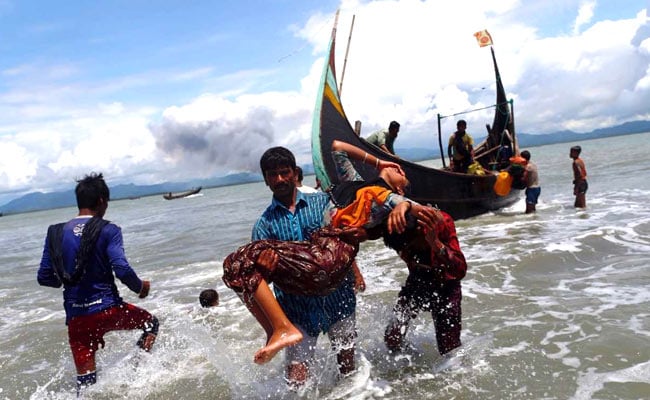
An exhausted Rohingya refugee woman is carried to the shore after crossing the Bangladesh-Myanmar border. (Reuters)
India's concern seems to stem from purported links between the Rohingya extremist outfit, Arakan Rohingya Salvation Army (ARSA), and Pakistan.
ARSA's founder, Ata Ullah is of Pakistani origin. In images leaked to the media this week, the Pakistan-based terrorist group Lashkar-e-Taiba's Hafiz Saeed is seen addressing an Arakan gathering in Karachi in July 2012.
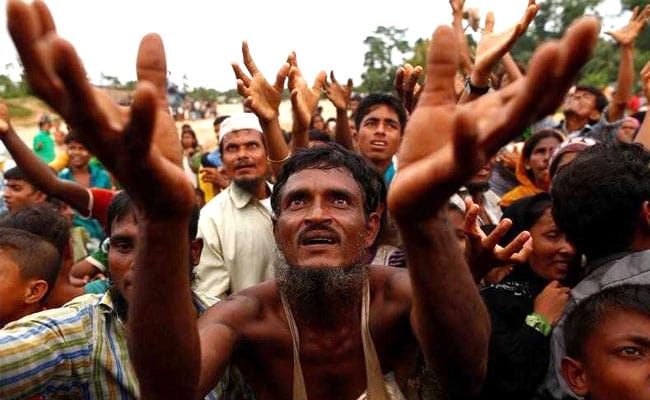
Rohingya refugees stretch their hands to receive food distributed by local organisations in Bangladesh. (Reuters)
An NDTV multi-city investigation into key Rohingya settlements in India found little evidence of terrorist links, or of greater criminality.
We focused on the four main centres where Rohingyas are based in India - Jammu, Delhi, Rajasthan and Haryana.
Jammu has the highest number of Rohingyas - 5,743 in all.
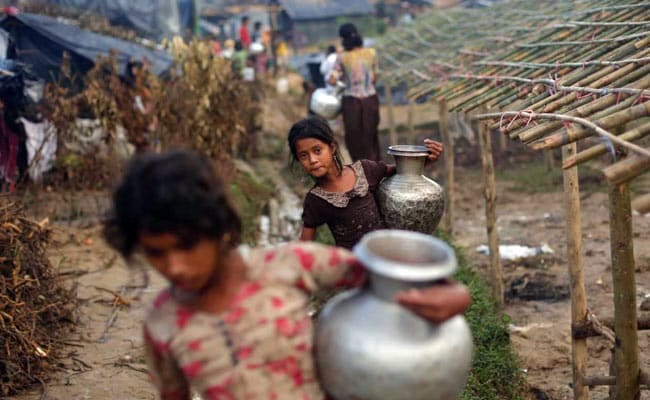
Rohingya refugee girls carry metal pitchers with water at Balukhali makeshift refugee camp in Bangladesh. (Reuters)
She said, "17 FIRs have been registered against Rohingyas for various offences, including those relating to illegal border crossing."
NDTV found that of these 17 FIRs, the two cases are against Bangladeshis and one against a Pakistani. So effectively, there are only 14 FIRs against 5,743 Rohingya Muslims, a crime rate of 0.24%.
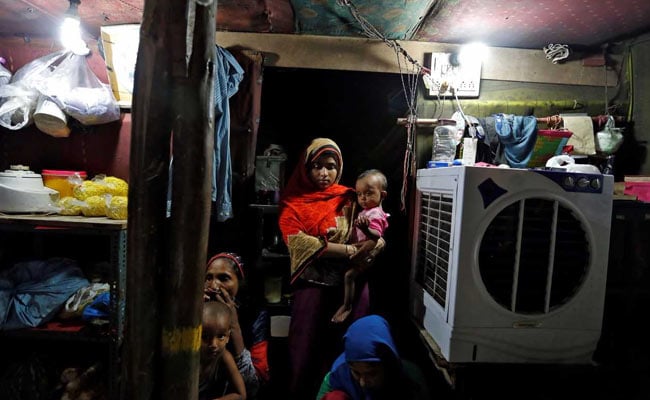
A family from the Rohingya community is pictured inside their shack in a camp in Delhi (Reuters).
These findings were matched by what the senior police officials in Jammu told NDTV.
"I haven't seen anything alarming in terms of their (Rohingya Muslims) criminal records. They are involved in petty theft like other groups of that social economic situation. But we haven't found anything alarming or their involvement in organized groups or very sensational nature cases so far," said Dr SD Singh, Inspector General of Police, Jammu.
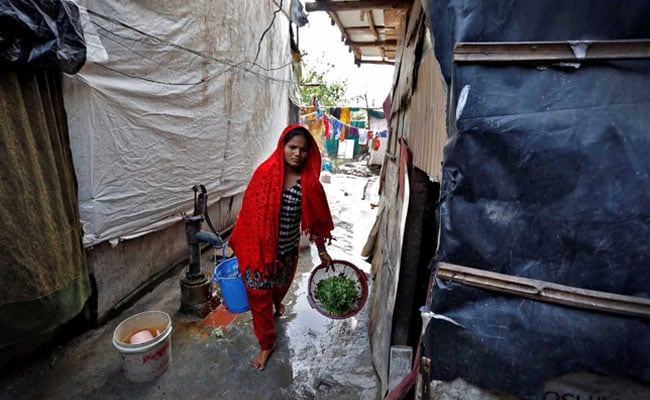
A woman from the Rohingya community carries vegetables in a camp in Delhi (Reuters).
In Jaipur, 350 Rohingya Muslims are spread over four police station areas. NDTV found that in these police stations, there was only one FIR, of a rape charge by a Rohingya woman against a Rohingya man.
In Haryana, the Rohingyas are clustered in Faridabad and Mewat. Police in Faridabad told NDTV that no cases are registered against Rohingyas. Police officials in Chandigarh said they have no state-wide data on crimes by Rohingyas.
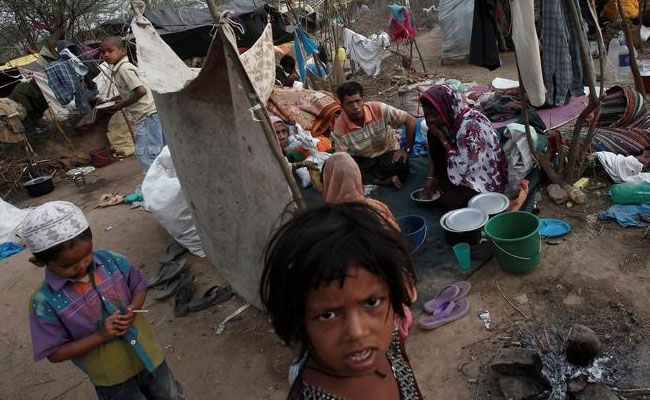
A family, who says they belong to the Rohingya Community from Myanmar, eats breakfast at a camp in Delhi (Reuters)
In each of these cities, police officials told NDTV that they regularly screen Rohingyas.
"Police comes here, CID also comes to check and IB also comes. They enquire about where we live our identity cards against our name. They verify all this. They come whenever the need arises. They check who is living here without card or without permission and even arrest them," said Mohammad Younis, a Rohingya living in Jammu.
Given the lack of evidence on the ground, it's unclear on what basis the government has chosen to portray Rohingyas as a "terror threat". Perhaps its stance will become clearer when it files a response to a petition in the Supreme Court, challenging the Centre's bid to deport Rohingyas.
Track Latest News Live on NDTV.com and get news updates from India and around the world

